“And first, let me not be considered responsible either for the Revolution, its consequences, or even its direction. I was a cipher.” – Joseph Fouché, Memoirs (1824)
“Turning later to the duke of Otranto, he [Napoleon] said: ‘The man is merely a schemer. He is prodigiously clever and facile with a pen. He is a thief, and steals anything he can lay his hands on… He thinks he can atone for his misdeeds, or anyhow cause them to be forgotten, by playing up to the relatives of his victims… [but] he is a man whom it may be useful to employ…’” – General Armand de Caulaincourt, duke of Vicenza, With Napoleon in Russia (written c. 1820)
“Where should I go then, traitor?” – Lazare Carnot to Fouché during the latter’s anti-revolutionary proscriptions of the Bourbon Restoration (to which Fouché replied, “Où tu voudras, imbecile!”— “Go where you want, imbecile!”)
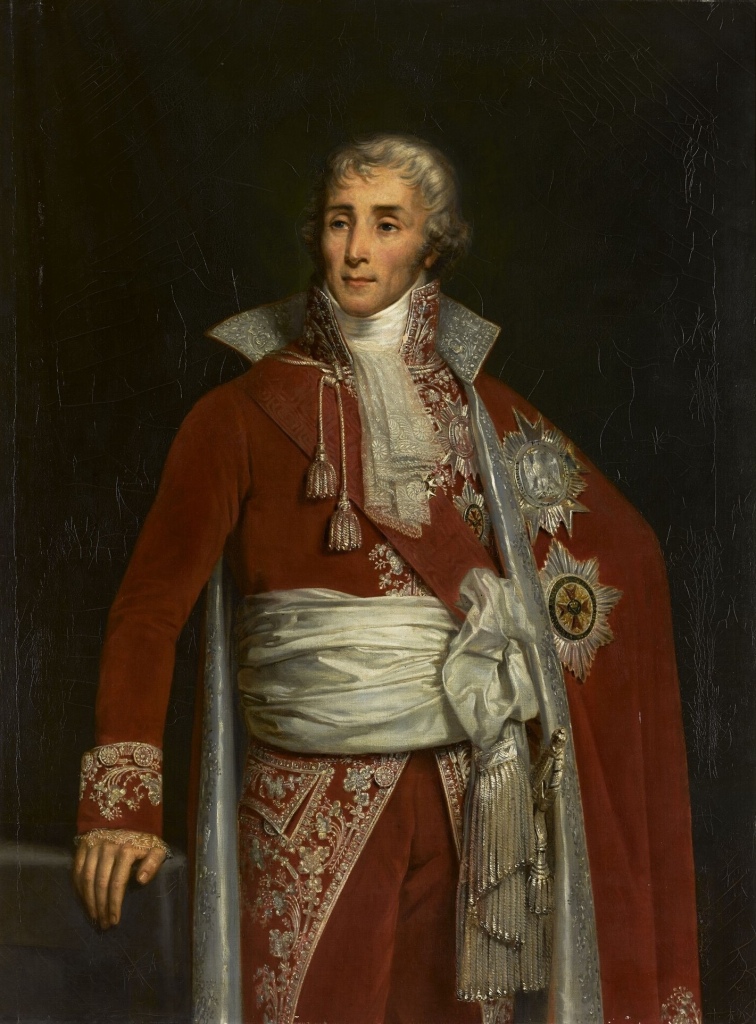
Last post we talked about characters from a lot of my books, but I realized that we didn’t really have any who fit the prompt from The Flight of Virtue. Not wanting to leave any book out, especially the one in danger of getting lost between God’s Wife stuff and The Gourd and the Stars, I thought about FoV-adjacent topics and decided that I should give you all a more thorough introduction to the anti-est of all the novel’s many antiheroes: Joseph Fouché. An obscure provincial schoolteacher from Nantes who became, against all odds and certainly against the express desires of anyone he came into contact with during his long and controversial life, arguably the most representative avatar of his turbulent age, for good or ill. A middle class professional who became a radical atheist anti-royalist , only to die a f****ing duke after being ennobled by Napoleon and allowed to keep said title for some godforsaken reason by the relatives of the king he’d helped murder. The ultimate survivor and chess master of 18th/19th century French politics, he was loved by no one on any political side, and his contemporaries tried to downplay his importance either out of contempt or unease—a posture modern historians have been largely content to follow.
My introduction to him as a historical personality came from the 2002 miniseries Napoléon, where he is portrayed in a curiously lifeless performance by Gérard Depardieu. Some critics have suggested that the French Depardieu was struggling with the English script, but this was after his perfectly fine English performance in The Man in the Iron Mask (1998), so I’m inclined to believe the otherwise very good Napoléon didn’t give him much to work with. My working theory is that the scriptwriters realized too late that Fouché has a very similar personality to Napoleon’s other majordomo, Talleyrand, and they decided they had to alter their Fouché in order to not take limelight away from the more important (to the script) Talleyrand (played deliciously by fellow Man in the Iron Mask alum John Malkovich). So Malkovich oozes around Napoleon chewing scenery, and Depardieu’s Fouché is left to sweatily mumble through his lines and creep about looking in keyholes. If the Napoléon script isn’t the sole culprit for this weird choice, I think everyone’s (past and present) reticence to acknowledge the ever-present Fouché is to blame. In the age of Napoleonic warfare and the guillotine, a major political player through all of it, who died tucked into his bed on the Italian coast despite pissing everyone off deserves a little more scrutiny. And possibly respect.

So who was Fouché, the man Napoleon once called “the craftiest man in the Empire”? As I alluded to, Fouché was born in Le Pellerin, a small village outside of Nantes on the Loire River in western France. Despite his later virulent anticlericalism, or maybe a cause of it, the middle class Fouché, by all accounts an excellent student, was sent to be educated by the Catholic order of the Oratorians, first in his native Nantes, and then at the order’s college in Paris. After his studies were completed, Fouché was highly regarded enough to continue to teach in the Oratorians’ other colleges, though contrary to later rumors, he did not take religious orders himself (Memoirs of Joseph Fouché, 9). He claimed that he later left the Oratorians with the intention of taking up the law (ibid), but it is probably more accurate to say that he left them because the order, like all Catholic institutions, was dissolved by the Revolution in 1792, and he had already gotten too involved in revolutionary politics to have stayed teaching much longer anyway. This was also around the time that he married his first wife Bonne Coiquaud, after a brief flirtation with the idea of marrying Charlotte Robespierre, the sister of his new acquaintance, Maximilien.
Although originally falling in with the native moderate Girondists of Nantes, Fouché would, according to him, be reluctantly pushed into the arms of the more radical Jacobins by the Girondists’ tepid condemnation of Louis XVI and their resistance to his execution. Despite his supposed “detestation” of the Jacobins “excesses” and “violences”(Memoirs, 11), Fouché would rapidly become one of their most notorious practitioners, despite his later cries to the contrary (“There are no exaggerations, no excesses, no crimes, either when in office or in the tribune, with which they have not loaded my historical responsibility.”, ibid, 10). One of the revolutionary government’s most zealous atheists and hard-line representatives on mission—the roving implementers of the laws passed by the National Convention and the Committee of Public Safety—he was sent to dechristianize the department of Nièvre in the name of the new Cult of Reason. This involved dismantling the churches and repossessing whatever wealth they had for the government, but Fouché supposedly even went so far as to force local cemeteries to write “Death is an eternal sleep” on their gates to discourage belief in an afterlife.
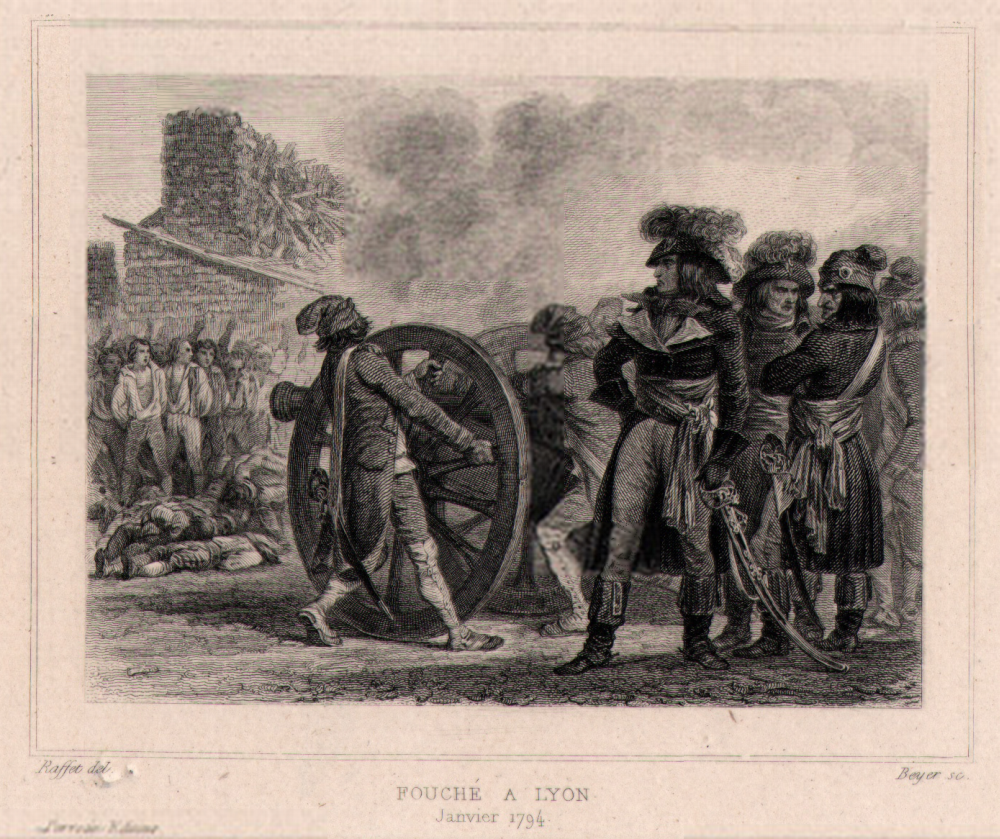
But Fouché’s most infamous episode occurred when he was sent with Committee member Jean Collot to put down the continued anti-Convention revolt in the city of Lyon in late 1793. Backed by two thousand soldiers from the Parisian Revolutionary Army, Collot and Fouché would set down a revolutionary tribunal in the city in late November and by spring of the next year, 1,800 Lyonnaise were dead and the city had been essentially razed to the ground. Unfortunately for the French Revolution, it’s not the number of Fouché and Collot’s victims that gives them their notoriety, but the reported savagery of the executions—and this in an extremely savage time. When the guillotine was deemed too slow, in a move that feels more like the brutality of Hitler’s Einsatzgruppen, the army was reportedly commanded to chain up victims in groups as large as two hundred people so that they could be killed with cannon grapeshot. This was wildly ineffective, and the traumatized soldiers were forced to finish off the masses of screaming, mutilated victims individually with swords and muskets. This went on for months, and the amount of blood and its stench was so bad that Fouché and Collot were forced to move the firing squads out of town to mitigate the complaints. Although he would later pin the blame squarely on the shoulders of the conveniently dead Collot in his memoirs (Memoirs, 14), when Fouché was recalled to Paris by a horrified Robespierre in 1794, he was supposedly much more sanguine about the horrific fate of Lyon, stating, “The blood of criminals fertilizes the soil of liberty and establishes power on sure foundations.“
But this, combined with his mocking attitude toward Robespierre’s beloved theistic Cult of Reason, was what put Fouché on a political collision course with the “Incorruptible” leader of the National Convention. Despite Fouché being elected president of the Paris Jacobin Club in the late spring of 1794, Robespierre tried to have him ousted from the party and denounced him as a traitor to the revolution on the Convention floor. But Fouché wasn’t completely friendless, and he leveraged his political allyship with both Robespierre’s ultra leftist rivals in the Committee of Public Safety like Collot and Nicolas Billaud-Varenne, and his discontented moderate rivals in the Convention like Paul Barras and Louis Fréron to rally the Robespierrean backlash that became the 9th Thermidor coup that led to Maximilien’s execution. Later political survivors of Thermidor would try to downplay Fouché’s importance to the sequence of events, preferring to focus on more moderate players like Barras and Bertrand Barère, but Fouché remains the common denominator in most of the conversations, and if nothing else, seems to have been a catalyst who was willing to badger the others of all factions that Robespierre would be coming for them next. I think the rest of his political career bears out that perhaps no one else in the period was better at talking themselves out of a dire situation, and his almost supernatural ability to switch sides unscathed through every stage of the Revolution implies the veracity of Fouché’s importance to events because this wouldn’t be the last time he pulled off this kind of thing.
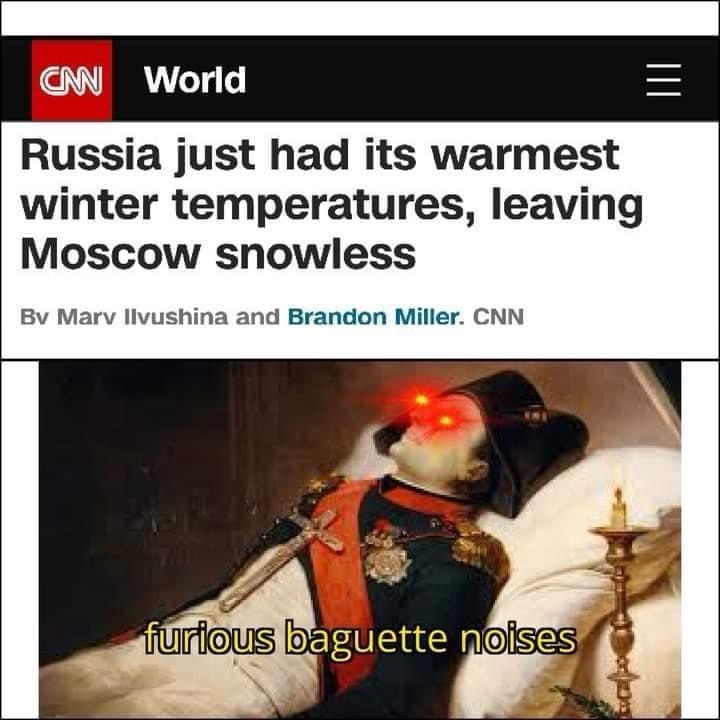
Fouché survived the downfall of Robespierre and the retaliatory reactionary executions, but just barely. Despite helping to establish the post-Convention Directory government (1795-99), his excesses in Lyon and his radical views left him politically isolated during the relatively moderate Directory period. He kept his hand in the game through the good graces of Barras, who appointed him to a series of low level government posts, but his real break came in 1799, when Napoleon partisan in the Directory, Emmanuel Sieyès, appointed Fouché as the government’s minister of police. Within three months of his appointment, Fouché was one of the most powerful men in Paris, and he would help Sieyès and Napoleon overthrow Barras’ government in the 18th Brumiere coup in November of that year. Napoleon would keep Fouché as his minister of police for the next decade, where Fouché would become not only one of the most powerful men in France, but as Napoleon’s spymaster, one of the most feared as well. In spite of their sometimes fractious and mistrustful relationship, as emperor, Napoleon created Fouché, the former anti-royalist revolutionary, the hereditary duke of Otranto in 1809–a title Fouché’s descendants hold to this day.
But by the time he was made what his more-often-than-not rival Talleyrand called a “gold-leaf nobleman” (a nobility easily scratched off to reveal the common man underneath), Fouché was already constructing an escape plan from Napoleon’s increasingly disjointed and volatile empire. By the time the emperor was being counseled to abdicate (the first time) in 1814, Fouché was helping the French Senate make conciliatory overtures to Louis XVI’s brother, the count of Provence, on restoring the monarchy. While not vengeful on behalf of his family, the new Louis XVIII wasn’t particularly interested in Fouché’s further help, so Fouché almost immediately started trying to overthrow the newly reestablished Bourbon monarchy. When word of Napoleon’s escape from Elba reached Paris, a panicked Louis offered to make Fouché minister of police again, but it was too late. Thwarting a Royalist kidnapping attempt, Fouché rejoined Napoleon’s Hundred Days government, once again police minister.
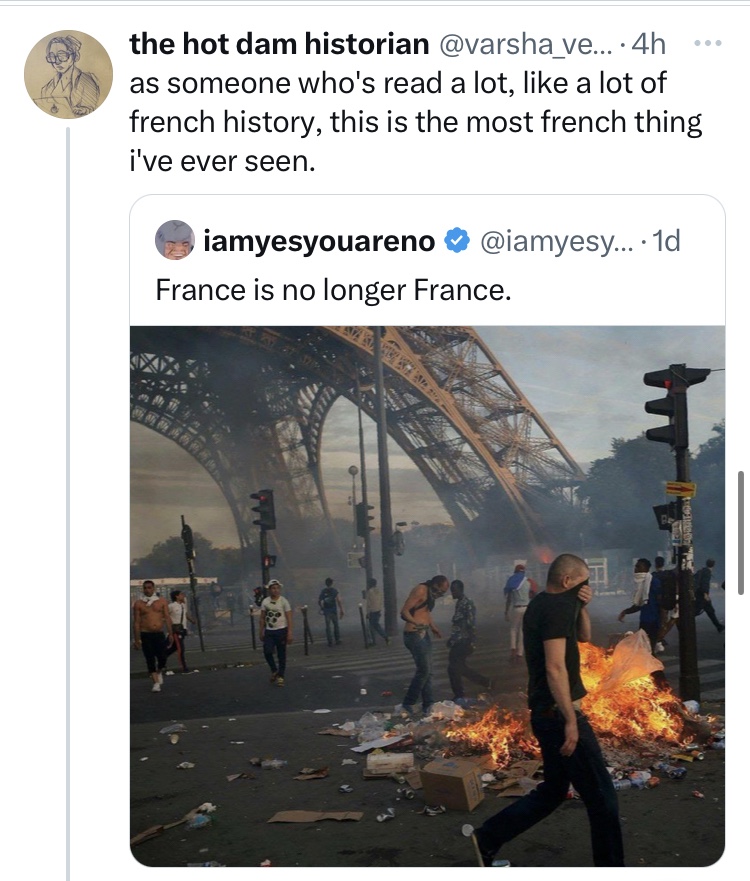
However, just as Louis had ignored Fouché’s calls for government reform, as soon as it became apparent that Napoleon had learned nothing from his exile and planned to reinstate the Empire as it was, Fouché almost immediately began conspiring with the European coalition forming to oust the emperor again. After Napoleon’s defeat at Waterloo barely three months later, the Bourbon monarchy was re-restored, and Louis, at a loss again, appointed Fouché as his minister of police. Within a few months, though, the crown realized how stupid they looked having a man who’d conspired to reinstate Napoleon purging pro-Napoleon supporters, so Fouché was relegated to a minor ambassadorship in Saxony. In less than a year, he was finally proscribed for his role in the revolution, and he came to the final end of his political career. He went into exile in Trieste on the Hapsburg-controlled Italian coast, wrote his surprisingly witty and readable memoir that I’ve been quoting, and died four years later in 1820, still the duke of Otranto.
So that’s the life of perhaps the French Revolution’s most remarkable unknown person, condemned to posterity as the ultimate traitor’s traitor in an era replete with backstabbing. And that’s really the rub of the matter to me as I did my research into Fouché for FoV—not that Fouché isn’t a scoundrel, but rather it’s hard to argue that he’s more deserving of condemnation than many other figures of the period. Lyon was truly awful, but Fouché isn’t wrong in saying that he wasn’t the only person responsible for it (although his “just following orders” stance isn’t absolution, either). And much like his old rival Robespierre, Fouché was a useful scapegoat for everyone from Paul Barras to Napoleon to distract from their own political crimes.
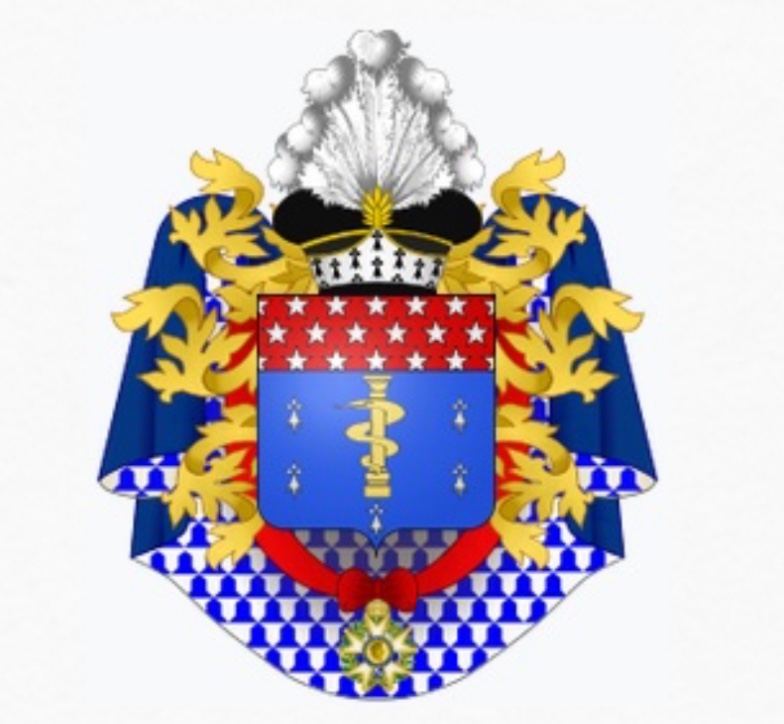
Arguably, Fouché’s biggest mistake was also his greatest strength—his ability to consistently outlive the corrupt governments he served. He wrote his memoir in part out of the tedium of exile, but also, in his mind, to set the record straight against the claims of men who in many cases were still envious of all he had accomplished. For years, others have even tried to deny that Fouché wrote it himself, attributing it to French historian Alphonse de Beauchamp (1767–1832), who did do some of its editing and compiling. But even without the general contemporary consensus that Fouché is indeed the primary author, I found the tone of the narration too similar to Fouché’s sly, intellectual personal style to have seriously doubted his authorship. And like Caesar’s commentaries, the fact that Fouché’s versions of events are often rhetorically charming lies and half-truths only points to his obscene cleverness that his enemies have spent nearly two centuries trying to obscure. Like the people of his own time who found him dangerous to employ and dangerous to ignore, I think we here in the new millennium deny his place in French history at our own risk.
Leave a comment